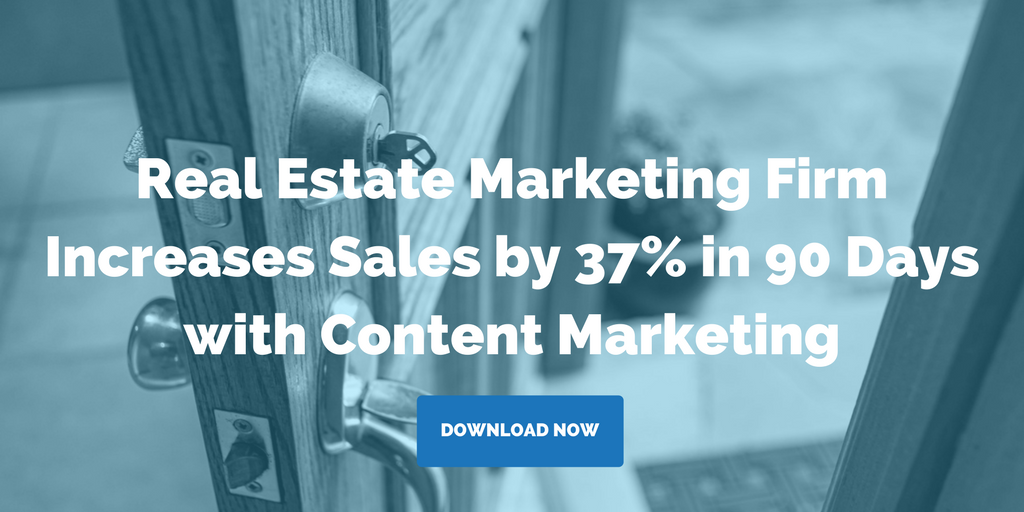Your search results for "C_HCADM_05 aktueller Test, Test VCE-Dumps für SAP Certified Technology Associate - SAP HANA Cloud Provisioning and Administration 👷 Öffnen Sie die Website ➡ www.itzert.com ️⬅️ Suchen Sie 「 C_HCADM_05 」 Kostenloser Download 👌C_HCADM_05 Online Prüfungen"

5 Ways to Generate Real Estate Blog Ideas
A real estate blog is one of the best ways to market your brand and properties. These five tools can help you generate relevant, engaging ideas.
We’ve said it before, and we’ll certainly say it again—a real estate blog is one of the best ways you can market your properties. Blogging helps increase search engine visibility, establish your brand, and drive web traffic (new leads). Maintaining an active blog also helps you build and maintain relationships and establish yourself as a trusted resource.
So, blogging is great for your business—but what happens when you can’t think of anything to write about. Content creation possibilities are endless but generating topics can nevertheless be daunting sometimes.
As usual, the internet is here to rescue you. To get you started, here are five of our favorite sources for generating real estate blog ideas.
1. Hubspot’s Blog Ideas Generator
Think Mad Libs: Give HubSpot three nouns, and its Blog Ideas Generator will give you topic ideas. This tool is a great way to focus on topics where you want to cultivate your authority and to generate blog post ideas for a topic cluster, in line with existing pillar content.
2. Google AdWords Keyword Planner
A free tool that allows you to search for a keyword related to your topic, Google AdWords Keyword Planner helps keep you on message by providing hundreds of keywords and phrases to help you generate ideas.
3. HitTail
This keyword analysis tool makes use of Google Analytics and Google Webmaster Tools data. It determines which keywords are driving traffic to your website and suggests additional keywords you could target to optimize traffic. Use these keyword suggestions to come up with real estate blog topic ideas.
4. Alltop
Co-created by legendary business advisor and author Guy Kawasaki, Alltop aims to help you answer the question “what’s happening” in topics that pertain to your business. Essentially, it provides a list of recent posts from the most trusted blogs on each topic. It’s a great “in” on the most important conversations going on among thought leaders in the real estate industry.
5. Ubersugggest
It may not be the best tool for coming up with actual post titles, but for generating general topic ideas, you can make Ubersuggest your go-to. Enter a word or phrase, and Ubersuggest produces a long list of results containing the word or phrase followed by related phrases.
Bonus: Twitter
Yes, you read that right. Twitter can actually be a useful tool to generate blog post ideas. Try running a Twitter search using your keyword proceeded by a hashtag (#properties, for example) to get a list of tweets containing your keyword. Twitter also has the bonus of being likely the most up-to-date conversation you can find on the web.
Now, all you need to do is to compile a list of real estate blog ideas, create an editorial calendar, and get started.
Related posts:
- 10 Must-Follow Blogs for Real Estate Marketers
- 4 Types of Content You Need to Sell Real Estate (Besides Listings)
- 4 Real Estate Marketing Trends 2018
Your search results for "C_HCADM_05 aktueller Test, Test VCE-Dumps für SAP Certified Technology Associate - SAP HANA Cloud Provisioning and Administration 👷 Öffnen Sie die Website ➡ www.itzert.com ️⬅️ Suchen Sie 「 C_HCADM_05 」 Kostenloser Download 👌C_HCADM_05 Online Prüfungen"

4 Steps to Building a Successful DIY Content Marketing Strategy for Real Estate
Looking to DIY a content marketing strategy? Get started with these steps.
Are you trying to create a content marketing strategy for your property but don’t know where to begin? Even the language around content marketing can seem foreign to newcomers.
Setting your content marketing strategy is a crucial first step in trying to reach your target buyers or tenants. Before you begin writing blogs, creating video content, and posting tweets, you need to set goals.
A content marketing strategy outlines the methods by which you will target, reach, and engage potential buyers. Here are four steps to creating a successful foundation if you’re planning to begin a DIY content marketing strategy.
Steps to building a DIY content marketing strategy
1) Identify your buyer persona(s).
Trying to write compelling content for an unidentified audience is like taking a shot in the dark. Knowing who your ideal buyer or tenant is allows you to create content that is informative, educational, and entertaining to that specific person.
The more detailed you can be with your buyer persona(s), the more specific and effective your content can become. The personal connection is particularly crucial for real estate buyers, and understanding your target audience is key to making that connection.
2) Define goals and objectives.
Your content goals should be a direct reflection of your business goals. What do you want your content marketing efforts to accomplish for your company?
Top marketing goals for content marketers include converting contacts/leads to sales, growing website traffic, and increasing revenue. Make sure you include short-term and long-term goals and that you frequently refer back to these goals to make sure your strategy is on track.
3) Develop and distribute content.
Once you have identified your audience and defined your content goals, you can begin to educate yourself about the distribution platforms that will work best for introducing buyers to your property.
Let’s face it: Social media is not a one-size-fits-all solution. It’s imperative you know not only what to post, but where to post it. Buyers and renters of different demographics use social media differently. You’ll need to determine what platforms your target buyers are using and how to reach them effectively.
4) Put your knowledge to work.
Once you have worked through the initial steps of planning a successful social media strategy, the real fun begins. It’s time to start pushing valuable, effective content out to potential buyers.
Just remember that your strategy should be fluid so you can adjust it as necessary. Especially if you are selling/renting a multi-unit property, you’ll have to change your messaging to move different units (i.e. penthouses vs. smaller units). But even if you’re not, buyers and social platforms change with time, so keep refining your strategy as you go.
Related posts:
- 4 Ways to Scare Away Real Estate Buyers with Content Marketing
- 6 Marketing Tasks Real Estate Marketers Can Outsource
- Social Media Can Be a Strategic Weapon in Real Estate Marketing
Your search results for "C_HCADM_05 aktueller Test, Test VCE-Dumps für SAP Certified Technology Associate - SAP HANA Cloud Provisioning and Administration 👷 Öffnen Sie die Website ➡ www.itzert.com ️⬅️ Suchen Sie 「 C_HCADM_05 」 Kostenloser Download 👌C_HCADM_05 Online Prüfungen"

DIY Digital Marketing Strategy for Real Estate in Four Easy Steps
Looking to create a DIY digital marketing strategy for your real estate brand? Get started with these four steps.
Highlights:
- A digital marketing strategy is your clear path to targeting, reaching, and engaging with potential buyers.
- You have to know who your ideal buyer or renter is before you can begin crafting content that is informative, educational, and even entertaining to your target audience.
- Let your planning pay off by distributing valuable, effective content that your readers want to see
You know you need to have a digital marketing strategy for your property but getting started can be challenging. Where do you begin? Even the language around digital marketing can be intimidating to newcomers.
A solid digital marketing strategy is the foundation for reaching target buyers (or renters). Before you start writing blogs and making videos, you need to set goals. A digital marketing strategy is your clear path to targeting, reaching, and engaging with potential buyers.
Here are four steps to creating a successful DIY digital marketing strategy.
Steps to building a DIY digital marketing strategy for real estate
1) Who is your buyer?
Trying to write interesting and engaging content for an unidentified audience is nearly impossible. You have to know who your ideal buyer or renter is before you can begin crafting content that is informative, educational, and even entertaining to your target audience. First of all, nail down the details about your buyer personas to make that personal connection: What are their interests? Where do they gather information? How much money do they make? What drives their decision–making?
2) What is your goal?
What do you plan to accomplish with your digital marketing efforts? The answer should define your content goals and become a crucial part of your business goals.
Our real estate clients often focus on converting contacts/leads to sales, growing website traffic, and increasing revenue. Include both short and long-term goals and refer back to these goals to make sure you’re sticking to your strategy.
3) Distribute, distribute, distribute
Identified your audience? Check. Defined your goals? Check. Next: select the best platforms for distributing your content to get your property in front of the right potential buyers and tenants.
Social media is a digital playground for marketers but knowing where to post is just as important as knowing what to post. You’ll need to identify what platforms your target buyers are using and how to reach them on those platforms.
4) Get to work
Once you have created your buyer personas, identified your goals, and decided on the best platforms for your target audience, the fun begins: getting your content in front of potential buyers. Let your planning pay off by distributing valuable, effective content that your readers want to see.
Remember to think of your strategy like a body of water, ebbing and flowing. Your digital marketing strategy should be fluid and adjusted as needed. If your property features multiple units, change your messaging to reflect and highlight that variety (for example, a penthouse unit).
Final word of advice: keep up with changing buyer behavior, stay on top of new features on social platforms, and refine your strategy along the way.
Related posts:
- Infographic: Content Marketing Statistics Every Real Estate Marketer Should Know
- How to Use Guest Posting as Part of Your Content Strategy
- 10 Quick Ways to Grow Brand Awareness
Your search results for "C_HCADM_05 aktueller Test, Test VCE-Dumps für SAP Certified Technology Associate - SAP HANA Cloud Provisioning and Administration 👷 Öffnen Sie die Website ➡ www.itzert.com ️⬅️ Suchen Sie 「 C_HCADM_05 」 Kostenloser Download 👌C_HCADM_05 Online Prüfungen"

Facebook Lead Ads: Why Your Property Should Use Them
Facebook Lead Ads allow prospects to leave their contact information without ever leaving Facebook or Instagram, increasing the chances of conversion.
On pace to hit 2 billion users this year, Facebook obviously has reach. Yet only 45% of B2C marketers feel that their Facebook marketing efforts are working. So why is Facebook advertising not showing a greater ROI for your business?
Well, what kind of ads are you running? Are you using lead ads? If not, that’s probably one of the reasons.
How Facebook Lead Ads work
Facebook lead ads allow you to run lead-generation campaigns on Facebook and Instagram. This kind of social advertising shows an ad for your property within the newsfeeds of potential buyers and renters. Just set the parameters (e.g. demographics, location, etc.) for your target audience, and the network’s algorithm will identify who sees the ad based on information they’ve provided in their profiles.
But here’s the real kicker: Unlike other ad types, lead ads include a contact form that lets prospects show their interest by filling out the form with their details without ever leaving Facebook (or Instagram).
Need more convincing? Here at Fronetics Real Estate, we find Facebook Lead Ads one of the most effective for generating leads. Because they streamline the process through which prospects sign up to learn more about your property, it’s more likely they’ll convert to leads. Besides, you save time and money because you don’t have to create extra landing pages to get their contact information.
Lead generation made easy
These days, people expect that everything from shopping to job searching can be done on their handheld devices. Facebook Lead Ads make that true for people wanting to learn more about potential properties.
Here’s how it works: Prospects click on a lead ad, and their contact information automatically populates based on information from their profile. No leaving Facebook to visit the property’s website or taking the time to provide contact information necessary. Lead ads make submitting information as easy as two taps on a phone: one to open the ad, and one to submit the information.
“If you want to iterate through lead forms quickly, Facebook Lead Ads are a great way to collect the information without building new landing pages and creating tons of copy,” says Tony Adams in Visible Factors. “The contact forms appear natively on Facebook and Instagram. You can easily use them to sign people up to newsletters for drip marketing campaigns.”
In a prime success story, news and information site theSkimm wanted to expand its reach and increase its conversion rate, with the ultimate goal of attracting more highly qualified leads and significantly increasing its subscriber pool. After testing a number of different tactics, theSkimm created a series of Facebook Lead Ads. The ads featured the company logo to reinforce its branding and a ‘Subscribe’ link inviting people to sign up on the spot. The result was a 22% increase in lead quality at a cost per acquisition of just $1-2.
Creating and modifying your ads
As buyers continue to turn to their handheld devices for quick, easy information, Facebook lead ads will give your property the opportunity to capture new leads with the click of a button. But just like any form of lead generation, you need to monitor and tweak your Facebook Lead Ads for optimal results.
Through Facebook’s Ads Manager reporting interface, you can obtain reports about cost, impressions, and clicks. As with all marketing tools, consistent refinement is the key to success, particularly in real estate marketing. Lead ads can easily be fine-tuned to cultivate a larger target audience.
Facebook Lead Ads provide real estate businesses an opportunity to gain leads and a larger reach. If you haven’t tried this yet, we highly recommend switching over some of your social advertising budget.
Related posts:
- 6 Social Media Don’ts for Property Management Companies
- Start Your Property’s Social Media Program in 6 Steps
- Social Media Can Be a Strategic Weapon in Real Estate Marketing
Your search results for "C_HCADM_05 aktueller Test, Test VCE-Dumps für SAP Certified Technology Associate - SAP HANA Cloud Provisioning and Administration 👷 Öffnen Sie die Website ➡ www.itzert.com ️⬅️ Suchen Sie 「 C_HCADM_05 」 Kostenloser Download 👌C_HCADM_05 Online Prüfungen"

Top 10 Real Estate Marketing Posts 2017
Here are Fronetics Real Estate’s most-viewed real estate marketing posts from the last year.
2017 was an exciting year for Fronetics Real Estate. We officially launched our brand, and website, in September. But despite our relatively recent kickoff, FRE is an entity born out of a longstanding expertise in real estate marketing. We have been working with residential and commercial real estate clients for many years under our parent brand, Fronetics.
It is that expertise that we aim to provide for the readers of the Fronetics Real Estate blog. This year, the following have been our most-viewed posts.
Top 10 real estate marketing posts
1) Using Content Marketing to Market and Sell Luxury Real Estate
In real estate sales, you want people to find your properties, like what they see, and ultimately be moved to purchase. In other words, you want to attract visitors, convert visitors to leads, and convert leads to deals. Innovative luxury real estate firms are finding ways to leverage digital tools to guide more buyers down that path to purchase. Read more
2) This Is How Often Real Estate Companies Should Post on Social Media
With social media networks changing daily, it’s hard to keep up with where to distribute content, much less how often. Countless studies have attempted to solve the social-media-frequency equation. And while audiences vary across price points and regions, best practices give us some general guidelines. Here’s our assessment of social media posting frequency. Read more
3) The Metrics You Should Be Measuring in Real Estate Marketing (Hint: Not Vanity Metrics)
Whether renting a new property or launching a social media campaign, we look for instantaneous numbers that will affirm we made the right choices. But here’s the problem: not all metrics are created equal. So-called vanity metrics are measurements that have no bearing on your bottom line but can give you an inflated sense of success. Read more
4) Learn How Content Marketing Increased Real Estate Sales by 37% in 90 Days
Consider this case study of a leading real estate marketing firm who chose to use digital and content marketing to shake up their traditional marketing approach. After just three months of beginning a digital and content marketing program, the firm recognized significant gains in web traffic, social media engagement, and brand exposure. Read more
5) This Is the First Thing You Should Do in Real Estate Marketing
Content marketing is one of the most effective ways to elevate your property’s reputation in the market, reach prospective buyers or tenants, and increase occupancy. Yet while many real estate marketers are using content marketing, not all feel their efforts are successful. Why do so many organizations feel they are failing? Simply put, they do not have a documented strategy in place. Read more
6) Real Estate Firm Grows Sales by 300% through Content Marketing
this case study about a prominent real estate marketing firm in one of the most competitive markets in the U.S. When traditional tactics weren’t bringing in the kind of business needed to sell 1,500 new-construction homes in a new planned community, the firm turned to a new content marketing program to increase web traffic and build brand awareness. Read more
7) Social Media Can Be a Strategic Weapon in Real Estate Marketing
The real estate industry is built on relationships, partnerships, cooperation, networks, and communication. Being social is a key part of forging a successful real estate marketing strategy. It’s time for the industry to embrace the tools that social media platforms offer. Read more
8) Paid Digital Advertising: A Beginner’s Guide for Real Estate Marketers
By investing in paid digital advertising, you can boost the reach of your posts, display ads, and videos. Pair quality content with a comprehensive digital advertising strategy, and you will be in a position to drive more traffic, create more brand visibility, and sell or lease more properties. Read more
9) 6 Signs It’s Time to Consider Outsourcing Your Real Estate Marketing
Real estate companies are increasingly open to outsourcing real estate management because it allows them to focus on their core competencies while improving effectiveness. So why not apply the same rationale to bolster your marketing efforts? Don’t be afraid to look outside the box for the marketing tools you need to succeed. Read more
10) 5 Tips for Building a Successful Real Estate Social Media Marketing Program
Social media is an excellent tool for real estate marketers to communicate with residents/tenants, build brand awareness, gain market intelligence, and even identify prospective tenants or buyers. Particularly if the latter is your focus, it’s easy to celebrate every follower you earn as a marketing success. But it’s important to remember that a social media follower doesn’t necessarily equal a buyer/tenant. After all, participating in social media is not only about earning a large following; it’s about building relationships with those people. Read more
Runner-up posts:



